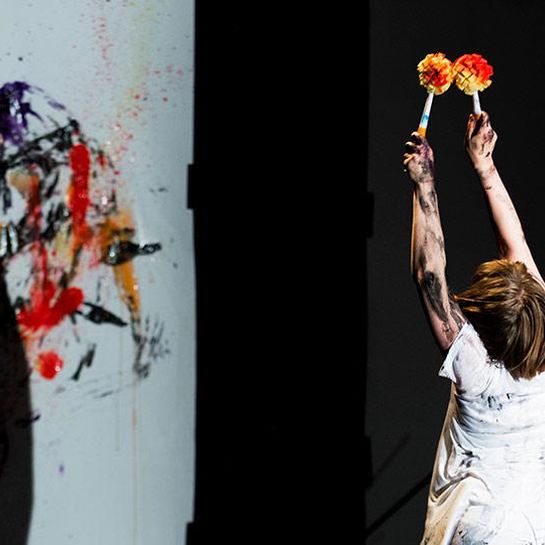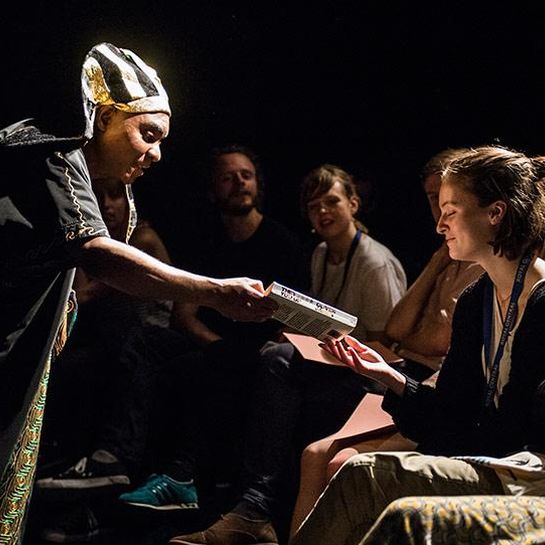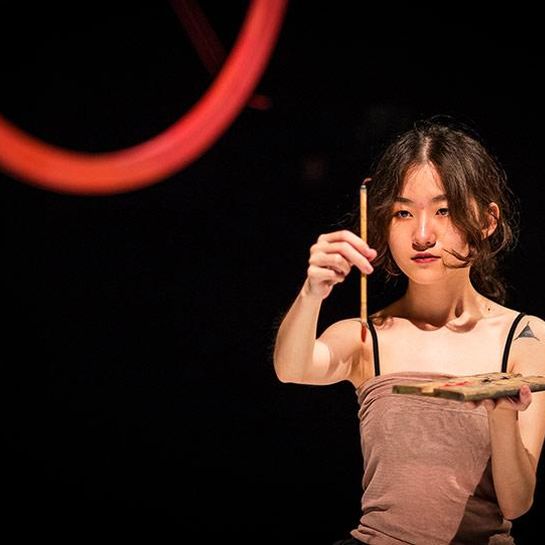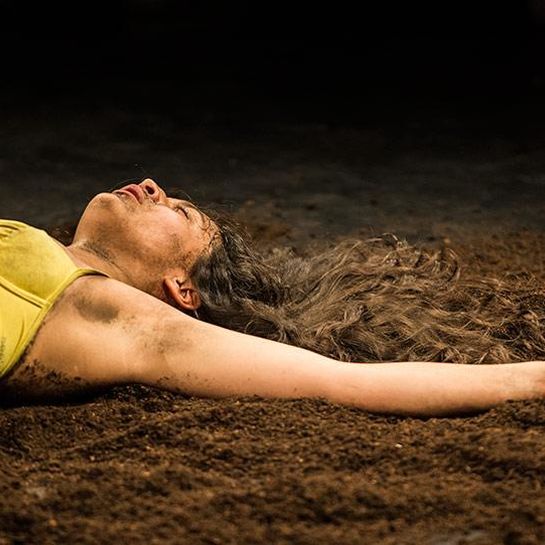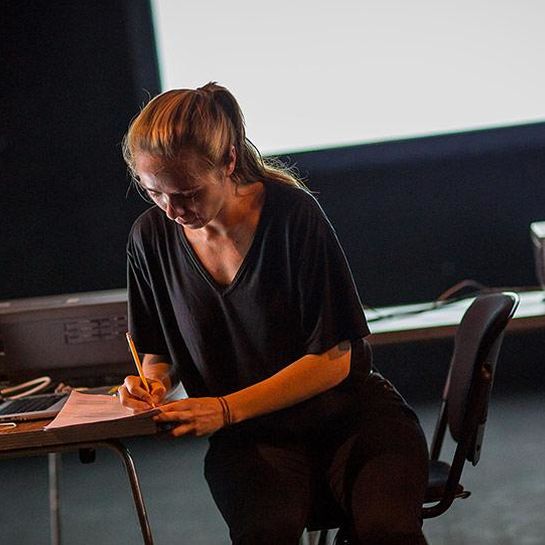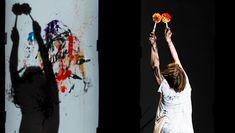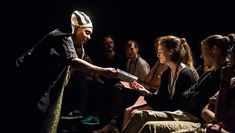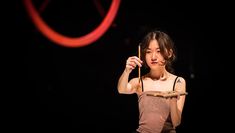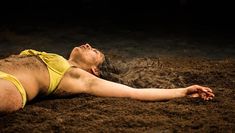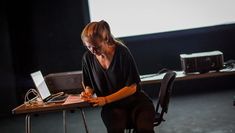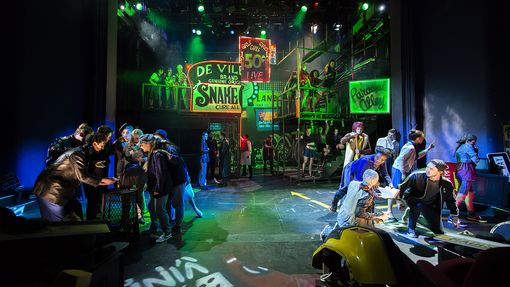About this course
This course will not be accepting applications for 2021 entry.
If you have an established practice and/or background in performance theory, on the MA/MFA Performance Practice as Research you can take your work to the edges of your specialism(s), exploring untouched ground, establishing new ways of thinking about and doing performance, while pushing the boundaries of your discipline(s).
- Taught courses for performance innovators who wish to investigate and interrogate concepts and practices within contemporary performance
- Designed for the ‘auteur’, the individual practitioner/researcher
- For those working across disciplinary boundaries
Our approach
You will become part of a thriving community of postgraduate scholars and practitioners working within a School-wide framework for research and experimentation. Interrogate, test and apply the most recent thinking and practices within your particular field, which may include any combination of performance practice(s), directing, scenography, composition, or live and performance art.
Emphasis is placed on a reciprocal relationship between theory and practice, where one feeds into and enlivens the other.
If chosen, a second MFA year can be undertaken, deepening the work of your first year, whilst gaining a critical expertise in a wider array of Practice as Research models.
During the MA/MFA Performance Practice as Research you might expect to:
- Participate in workshops and seminars to investigate the relationship between the concepts and materials of performance
- Analyse making, performing and spectatorship as interrelated activities
- Engage and apply critical contexts and concepts
- Explore different strategies and methods for conducting research and disseminating the findings, leading towards a conference presentation
- Undertake laboratory exploration of performance practice as a way of testing ideas
- Develop work towards a public presentation at Central’s Brink Festival
- Undertake a Sustained Independent Project (SIP) culminating in a dissertation or a portfolio documenting practice-based research.
An MFA top-up year for those with an existing MA in this subject is also available.
Accordion
-
Course Detail
A course shaped around your interests
As the courses value the particular skills and personal proposals that individual students bring to them, the interests that you express can shape the timetable and content of course units.
On both the MA and MFA courses, you start by learning the key vocabularies and skill sets within the Critical Contexts and Performing Practices units, before moving into the individual laboratory work in the Developing Your Disciplines unit, while concurrently joining others in the MA community in the Performing Research unit. You then go on to produce the Brink Festival as part of the Laboratory of Performance Practices double unit while benefiting from select professional development sessions.
For MAs, the last term (July to September) is undertaken as a Sustained Independent Project (SIP), where you synthesise all the learning and development through a multimodal output within a dissertation.
If you choose the MFA, you return in October for your second year where, inspired by your own work in the Brink Festival and new work you investigate as part of your research, you engage in an extended MFA Sustained Independent Project (SIP). This is a supervised multi-modal thesis helping you gain expertise in the various dramaturgies, modes and models of performance practice as research through the lens of the methodologies developed in your first year, and others examined as part of your MFA research second year.
Assessment
Assessment is through presentations, performances, process work and written submissions, as well as a personal documentation project or dissertation.
-
Entry Requirements and Admissions
You should normally have an undergraduate degree in a relevant field, (drama, theatre or performance studies), although applications from students of other disciplines will be considered. Applicants without a degree will also be considered where appropriate provided they have at least two years relevant experience in a professional context. A portfolio may be required in support of your interview. An offer will normally only be made after interview.
We particularly encourage applications from groups currently under-represented in higher education, such as students with disabilities and members of Black, Asian and Minority Ethnic groups. Find out more information on Central’s commitment to equality and diversity.
English Language Requirements
Applicants for whom English is not their first language are required to prove their English language proficiency by gaining an overall score of 7.0 in an IELTS test. We do accept equivalent English language qualifications. Applicants are advised to gain this certification as early as possible and more information can be found through the English Language Requirements page.
Interviews
If you are selected for an interview for a place on the Performance Practice as Research, MA or MFA course, we will require you to prepare the following:
- a short (500 words) account of an aspect of performance which you would like to explore in greater depth. Your account should state why this aspect interests you and how it relates to broader issues or practices in contemporary performance;
- a brief response (no longer than three minutes) to the interview image by way of notes/sketches/physical enactment, as if this was the beginning of a production/development process.
International Interviews
Each year Central hosts a number of interviews outside of the UK, with a team of tutors from Central travelling to meet applicants. The international interviews are designed to replicate the London-based interview experience in every aspect (other than a tour of our site!). See our Event Finder for listings of upcoming interview locations and dates.
Distance Interviews
Central does allow applicants to undertake a distance interview for this course. If you live abroad and are unable to attend an interview in person you may, at the discretion of the Admissions Tutor, be offered the opportunity of a distance interview. If you are selected for interview in this manner you will be contacted (normally by email) in order to arrange a suitable time for an interview. This will be conducted on Skype, telephone or by ‘live’ email exchange and will normally be based upon material you will have been asked to submit in advance. The interview will be conducted by the Admissions Tutor in liaison with a colleague who will have sight of your submitted materials.
International Students
Visit the International Students section to view details of English language requirements for Central’s courses.
-
Recent Graduate Employment
Graduate employment and career pathways include:
- Choreographers, Composers, Creative Producers, Dramaturges, Directors, Artistic Directors, Performers and Visual Artists, for example Assistant Designer, Berlin State Opera.
- Producer with Franko B. Public Engagement Coordinator, Battersea Arts Centre.
- Production Manager, cabaret venue, Fusion Festival, Germany.
- Assistant Producer, War Horse.
- Personal Assistant, Alexander McQueen.
- Administrative/Artistic Assistant, Clean Break.
- Assistant Designer, English National Opera, East London Dance.
- General Manager, National Youth Theatre.
- Concert Coordinator, Music Conservatory, Roosevelt University.
- Artistic Director, Portmanteau.
- Performer, Stomp.
- Dancer, Candoco Dance Company.
- Dramaturg, Young Vic.
- Theatre/Performance Programme Manager, Morley College.
- Venue Manager, The Rag Factory.
- Producer, Tiger Aspect Productions.
- Digital Producer, Young Vic.
- Feldenkrais Practitioner, winner of Best International Award in USA Feldenkrais Film Festival 2016 for 9 Seconds.
- Fulbright Postgraduate Student Award for study at Wesleyan University, USA. The course is also a grounding for PhD research and an academic career (or portfolio career as practitioner-academic).
Performance work developed on the course as part of Central’s Brink Festival has also been presented at The Place, The Space, The Old Vic Tunnels, the Roundhouse, Camden People’s Theatre, Brighton Festival, Beacons Festival, Adelaide Festival and the Edinburgh Festival Fringe.
-
Notable Graduates
Notable graduates of this course include:
Ben Cooper-Melchiors (2010) Assistant to the Artistic Director at the Young Vic theatre. He is also Co-Founder of YourProspect, a creative business consultancy.
Lou Coleman (2010) Developed her own practice specialising in the area of Feldenkrais, autobiography and disability working with such companies as: Candoco Dance Company, Graeae Theatre Company, Unlimited and Oily Cart Theatre Company.
Louis Orwin (2011) Auteur, creator of Pretty Ugly and The Barbie Series, performs internationally. Work featured in Wired Magazine, The Independent, The Daily Mail, The Telegraph and on Woman’s Hour.
Androniki Marathaki (2010 ) Choreographer, dancer and facilitator at Kinitiras, Greece, creator of ‘modulated choreographies’, a new practice.
Sophie Robins (2012) Poet and performer, member of The Roundhouse Poetry Collective (2014), the Burn After Reading Poetry Collective (#BARPo) and Podium Poets. Co-founder of The Patchwork Paper
Melissa Booth (2012) Artistic Director of the performance company Portmanteau, having presented work at Camden Roundhouse, Oval Theatre, Camden People’s Theatre, Theatre Delicatessen, Rich Mix.
-
Recent Visiting Professionals
- Dr Tania Batzoglou (Practitioner-Researcher, Drama and Movement Therapist with the Victoria and Albert Museum, Historic Royal Palaces)
- Dr Luis Campos (Lecturer in European Theatre Arts, Rose Bruford College)
- Dr Rachel Cockburn (researcher, artist, and lecturer, London)
- Dr Jon Davison (clown performer, teacher, director, lecturer)
- Kevin Logan (cross-disciplinary artist of installation, digital media and sound composition/design)
- Dr Nando Messias (practitioner-researcher in performance art, dance and theatre, performer at Hayward Gallery, V&A, Tate Tanks, Gate Theatre, Toynbee Studios, Riverside Studios, Roundhouse, Royal Vauxhall Tavern and ICA, among others)
- Deirdre McLaughlin (Director MA Acting, Arts Educational Schools, Symposium Coordinator, Embodied Cognition and Performance Training)
- Louise Orwin (live artist, researcher, writer and performer, live and recorded works with incarnations in performance, video and photography)
- Ruthie Osterman (theatre director, playwright, performer)
- Joe Parslow (Central PhD candidate, visiting lecturer)
- Dr Jo Scott (live media practitioner-researcher and Lecturer in Performance, University of Salford)
- Farokh Soltani-Shirazi (Central PhD candidate, visiting lecturer)
- Dr Konstantinos Thomaidis (Lecturer in Drama, Theatre and Performance, University of Exeter, Artistic Director of Adrift Performance Makers)
- Salomé Voegelin (Reader in Sound Arts and author)
- Joe White (teacher/mentor at Central, ArtsEd, St Mary’s, drummer and performer with Stomp)
- Dr Mark Peter Wright (artist-lecturer, researcher working with experimental approaches to sound and listening, University College of Communication).

